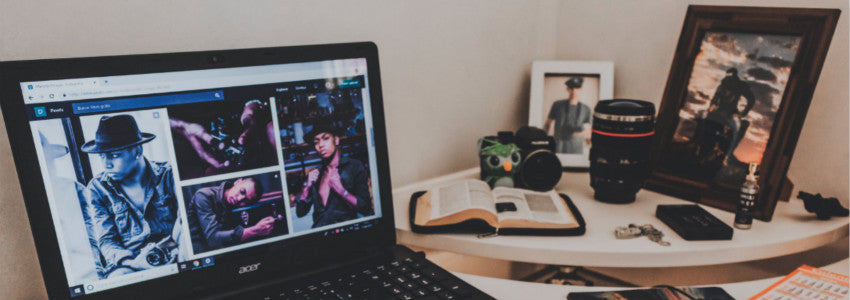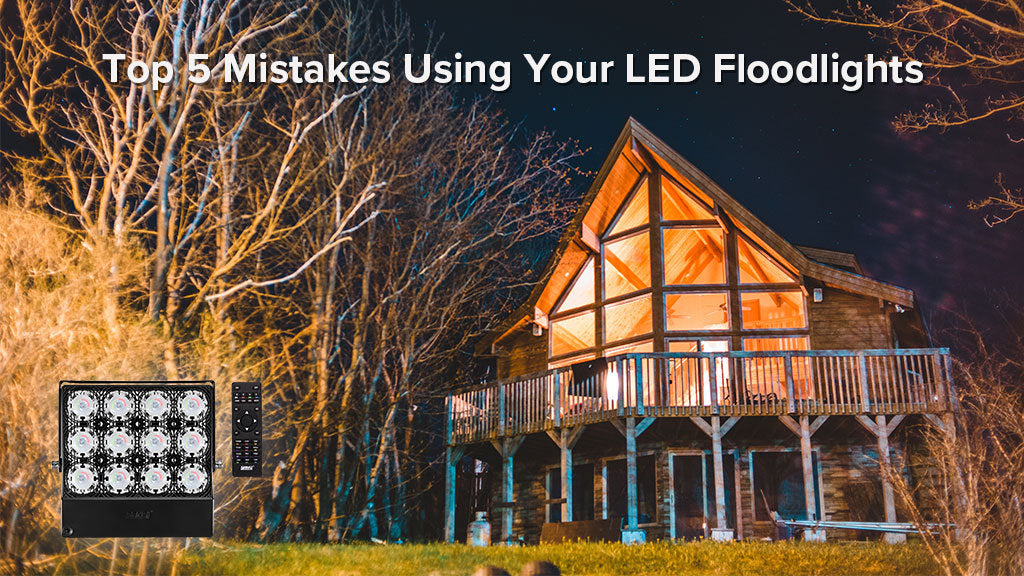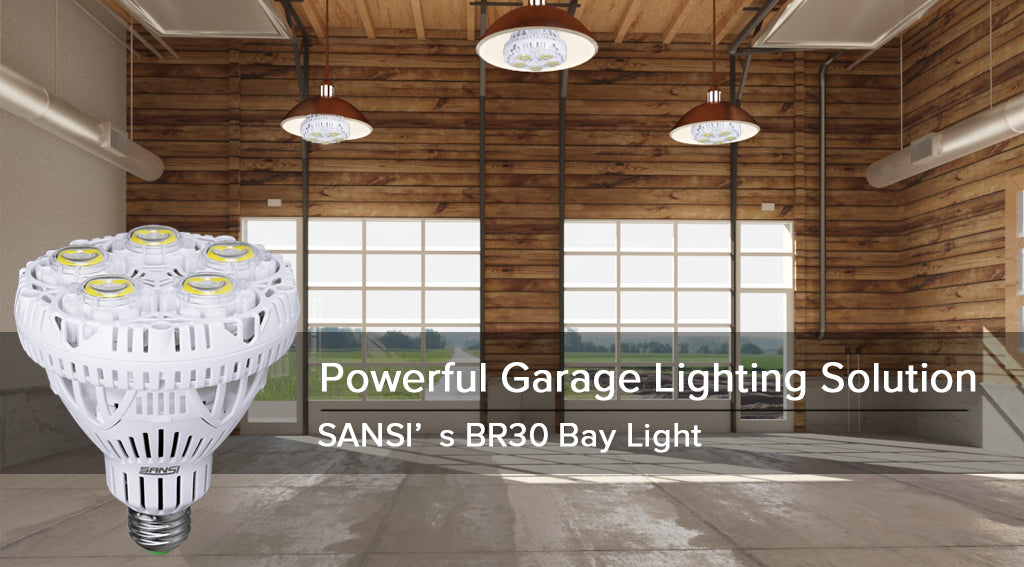It’s relatively early in the academic year and school and university students have not been back too long. However, the homework, coursework, and essays are beginning to stack up. You might find yourself or your children sitting at the table late at night working away, needing a good reading light that is going to aid their performance and not damage their eyes.
Studying in The Daytime
For your eyes and studying actually the best light is natural daylight. For the most optimal studying area, you would need a room with large windows receiving a lot of natural sunlight supplemented with some artificial lights. However, for most of us, our extracurricular studying will be during night time under artificial light. Therefore, this blog is more aimed towards those of us who are looking for a better night time studying solution.
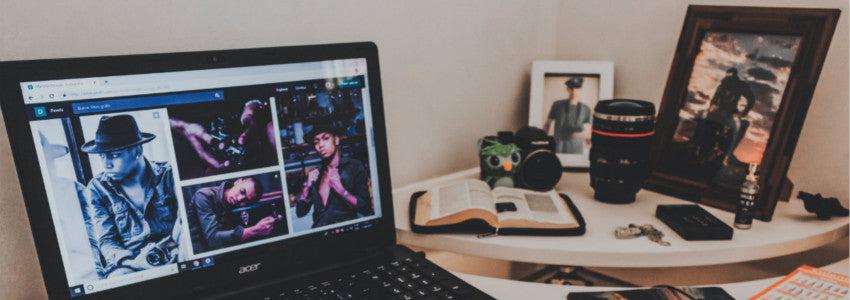
What Specifications To Look For?
For an effective LED study light, you will need the right power, color temperature, and energy efficiency.
Power, What Wattage?
The power of the LED bulb is variable to the position of the light’s fixture and how far away it will be from your eyes. For a table lamp, you will be looking for something between 5W-8W and for light around 3meters above your head anything around 22Watts will be fine. However, as most people are aware not you should be looking more into the lux level/Lumens if you really want to find the correct amount of brightness for your studying.
Color Temperature
In terms of color temperature for me, there are two ways to go. You can look to replicate natural sunlight or you can go for a color temperature a little higher in order to promote alertness. However, going higher and higher up the color temperature scale does have a cutoff point. There is a certain point where the color temperature is too high and it can actually have the opposite effect you are looking for. A color temperature between 4000K-5500K would be a very close replicate of natural daylight. You may be able to go a little higher to cool white to a limit of about 5700K anything over this, especially 6000K, you will begin to stress your retina and you may actually become sleepier.
Energy Efficiency
What you’re going to need in an LED light are two things. High luminous efficacy and good heat dissipation to prove its energy efficiency. A high luminous efficacy for an LED light should be around 100lumens/Watt. This would make your light provide a large number of lumens while consuming a low level of power. For example, a 5W LED bulb putting out a 500Lumens beam. It would be more than enough for a desk lamp. In terms of heat dissipation, you will have a choice of going for a light with internal fans or heat sinks. Personally I would go for an LED with advanced heat sink technology as fans can be noises and make the light heavier and maybe shorten the product’s lifespan.
How Bright Should A Study Light Be?
For measuring brightness, especially in a room or over a working area using lux is maybe the best measurement. For those of you who might be asking what is a lux? I will define it. 1 Lux is equal to 1lumen/m2. So it is more accurate for calculating the light intensity in a specific area. For a working area, the lux should be around 300-500 lux. For high-intensity working areas such as offices or jobs that require very high visual performance such as technical drawing etc, 1000+ lux is suitable.
The Affect of Ambient Light On Studying
Over the period of 2008-2009, Fagerhult held an experiment using school pupils to see the effects of ambient lighting on a pupil’s performance. The study found that pupils using task and ambient lighting together had higher concentration levels and were performing better under the combination of these lights. So for your own personal workspace, a combination of lights may be a better option. Mixing ambient lighting with a desk lamp has been shown to lower your sleep hormones and increase your alertness so this is a winning combination for study lighting.
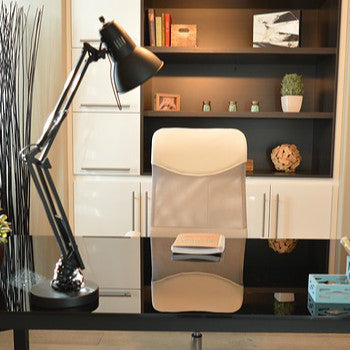
Study Lights Before Bed?
For the most optimal way to fall asleep, you should be avoiding light for around 45 minutes to an hour before bed. Since any form of light may disrupt your body’s production of melatonin. For any form of night time studying maybe a more yellow beam could be an option but just not having artificial light on before you go to bed is the best option.
What is the Best Bulb For a Study Desk Lamp?
For a desk lamp, I would suggest the SANSI 9W 5000K bulb. This bulb is great for studying as it produces a 5000K beam at 900 lumens, more than capable of keeping you alert! The SANSI 9W bulbs come in a 6 pack which was great for my home as I was able to install 1 as a desk light and use the others to layer the room with ambient lighting. For my study, having a 9W bulb at 5000K really made a big difference to my productivity!
What unique about the SANSI 9W Bulbs?
There are two things I love about these bulbs. Their look and their performance. Their look and performance are supplemented by their innovative design. The innovative aspects of this product are its use of ceramic combined with the hollow design. As you can see in the illustration below:
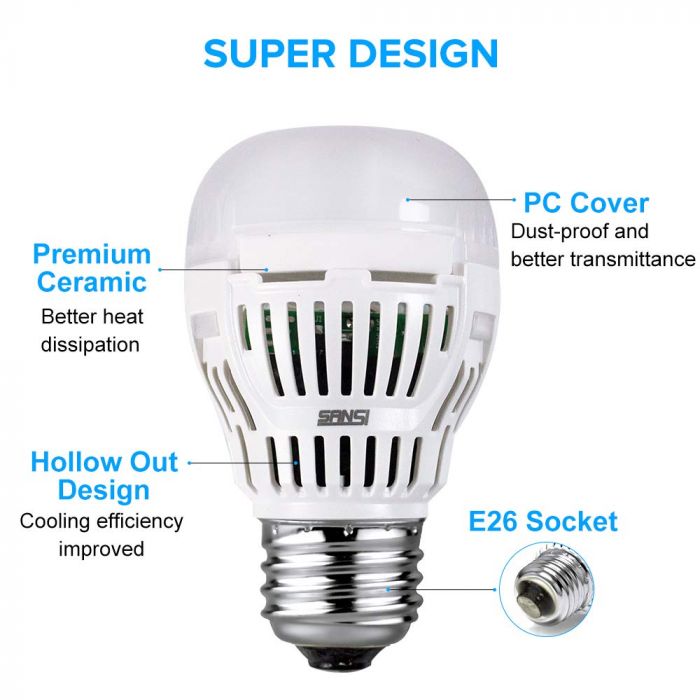
As you can see from the image, these bulbs are built to dissipate heat effectively and efficiently. I have not seen many ceramic LED bulbs on the market so this one stood out. What I like about the use of ceramic is the porcelain look and the way it allows for the LED chip to be directly stuck onto the bulb. Without the use of thermal adhesives or PC boards these bulbs have fewer parts and create much less heat than other LED bulbs. This combined with a hollow body makes the bulb able to dissipate heat incredibly well.
If you’re interested in improving your studying and being more proactive with the time, then you can buy a 6 pack of these bulbs. Please click here to enter.

